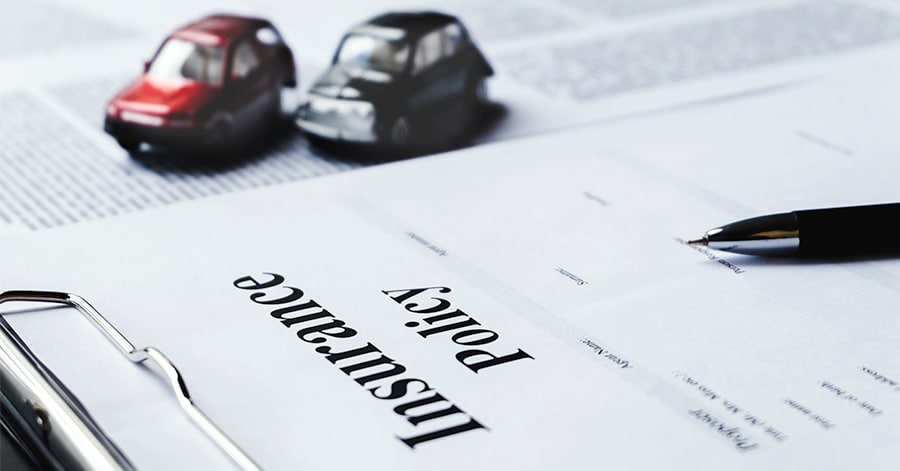Understanding the Different Types of Car Insurance Policies

Buying car insurance can get confusing. You have so many options and each comes with an additional premium. The law requires liability insurance, but what do you need beyond that? It’s not as confusing as you think.
[sc_content_link label=”Get today’s insurance rates.” cat=”car”]
Below we help you understand your options and the pros and cons of each.
Liability Insurance – It’s Required
Let’s start with the required insurance. You need liability insurance if you want to be on the road. By you driving, you put others at risk. No, that doesn’t mean you’re a bad driver. But, anything could happen. If you cause harm to someone else or personal property, you need to pay for it. Without insurance, you could be looking at thousands of dollars. The government can’t risk that, which is why you need liability coverage.
Liability insurance has two coverage types:
- Bodily injury – This covers the cost of injuries caused to another person – not you or your passengers
- Property damage – This covers the cost of repairing the other cars involved as well as any property damaged (storefronts, homes, etc.)
Comprehensive Insurance
Your state may not require comprehensive insurance, but if you finance your car, you may need it. Banks use your car as collateral. Without comprehensive insurance, paying for damages could get costly, even unaffordable.
Comprehensive coverage protects your car from non-collision type accidents. Things like hail damage, theft, vandalism, and fire fall under this category. Anything that doesn’t involve crashing with another car may fall under this category.
Comprehensive insurance typically has a deductible. You must cover this amount before the insurance covers the damages. Choose your deductible wisely. The higher the deductible you choose, the lower the premiums the insurance company can offer. But, accepting an unaffordable deductible won’t help you in the face of an accident.
Collision Insurance
As the name suggests, collision insurance protects you during a crash. If you are at fault, this covers the damage to your vehicle. The coverage helps pay for repairs and/or replacement of your car, should the insurance company total it.
This coverage only covers your car. It goes into effect with multiple car crashes as well as single-car crashes (i.e. crashing into a fence, light pole, etc.).
Like comprehensive insurance, you’ll have a deductible. You must meet that amount before the insurance company will cover the damages. Keep your deductible at a reasonable amount.
[sc_content_link label=”Shop and compare insurance quotes.” cat=”car”]
Medical Payments Insurance
Liability insurance doesn’t cover injuries you or your passengers experience. Medical payments coverage does, though. This insurance is optional. If you don’t take it, you’ll pay the costs of medical expenses out of pocket.
It only comes into effect if you are at fault for the accident. If another driver causes the accident, their liability insurance covers your medical bills. Medical payments coverage includes the cost of doctors, hospitals, x-rays, surgery, and physical therapy, as a few examples.
Carefully consider the limits of medical payments coverage. Ask your agent about the average cost of a hospital visit or recovery from standard car accident injuries. That gives you a starting point. Any costs that exceed your coverage become your responsibility.
Personal Injury Protection
Personal injury protection takes medical payments coverage one step further. Like medical payments insurance, it covers the medical costs incurred after a car accident. It also covers lost wages and childcare expenses that result from the accident.
This insurance covers you no matter who is at fault. Not all states offer this insurance, so check with your provider to see if it’s an option.
Towing Insurance
If you have comprehensive insurance, you may tack on a towing rider. This insurance covers the cost (up to a limit) to tow your car. Some towing insurance riders include labor insurance as well. This coverage helps reimburse you for the cost of labor to repair the vehicle as a result of a comprehensive insurance loss.
Gap Insurance
Cars depreciate quickly, sometimes faster than you can pay the loan balance down. If you total your car early in ownership, you may owe more than the car’s worth. Gap insurance covers the ‘gap.’ This helps reduce your financial responsibility as you pick up the pieces and get a new car.
Rental Reimbursement Coverage
You rely on your car. When you are in an accident, you can feel lost. How do you get around? Renting a car gets expensive, especially long-term. Rental reimbursement coverage helps reduce your out of pocket costs if you must rent. Make sure you know your daily and overall limits when using your coverage, though.
Car insurance seems like a nuisance, but you’ll be grateful for it if you have a claim. You pay the premiums year-round, but when you have to file a claim, it all becomes worth it. Choose your insurance wisely. Choose the right premium and deductible that suits your financial needs while providing the necessary protection.
[sc_content_link label=”Get the right insurance coverage.” cat=”car”]
